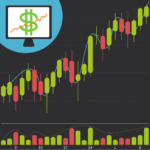Social trading has opened the doors to financial markets for investors of all skill levels, offering tools to collaborate, learn, and grow alongside a community of traders. However, achieving success in social trading requires more than just copying others; it demands thoughtful planning and smart strategies. Here are some of the best approaches to help you maximize your potential in the world of social trading.
Define Clear Goals
Before diving into social trading, take time to establish your financial objectives. Are you looking for short-term profits, long-term wealth growth, or a mix of both? Your goals will influence the types of traders you follow and the strategies you adopt.
Having clear goals also ensures that your decisions remain aligned with your risk tolerance, helping you stay focused and avoid impulsive choices.
Research and Choose the Right Traders
One of the key features of social trading is the ability to follow and copy experienced traders. However, not all traders are equal, so selecting the right ones is critical. Look for individuals with:
- Consistent performance over time.
- Risk levels that align with your comfort zone.
- Transparent trading histories and strategies.
Avoid blindly chasing traders with high returns, as they may take excessive risks that could jeopardize your portfolio. Instead, prioritize steady and sustainable performance.
Diversify Your Portfolio
Diversification is a fundamental principle of investing, and it applies to social trading as well. Instead of putting all your funds into copying a single trader, spread your investments across multiple traders with different styles and asset classes.
This approach minimizes the impact of any one trader’s losses on your portfolio and ensures a more balanced and resilient investment strategy.
Monitor and Adjust Regularly
Social trading doesn’t mean you can set it and forget it. Markets change, and so do the performance and strategies of the traders you follow. Regularly monitor your portfolio and evaluate the traders you’re copying to ensure they continue to meet your expectations.
If a trader’s performance dips significantly or their strategy no longer aligns with your goals, don’t hesitate to adjust your choices.
Use Risk Management Tools
Most social trading platforms offer built-in risk management features, such as stop-loss settings and portfolio trackers. Leverage these tools to protect your investments and control your exposure to market volatility.
Setting clear limits on how much you’re willing to lose per trade or overall will help safeguard your capital and prevent emotional decision-making during turbulent times.
Engage with the Community
One of the greatest advantages of social trading is the access it provides to a community of like-minded investors. Participate actively in forums, discussions, and social feeds to exchange ideas, ask questions, and learn from others.
Engaging with the community not only enhances your understanding of trading but also keeps you updated on market trends and new opportunities.
Stay Informed About Markets
Even though social trading allows you to lean on the expertise of others, having a basic understanding of market trends and financial instruments is invaluable. Stay informed by reading market news, following economic events, and exploring the rationale behind the trades you copy.
Start Small and Scale Gradually
When you’re new to social trading, it’s wise to start with a small investment. This approach allows you to familiarize yourself with the platform, test different strategies, and build confidence without risking significant capital.
Be Patient and Consistent
Success in social trading doesn’t happen overnight. Building a profitable portfolio requires time, patience, and consistent effort. Avoid the temptation to chase quick profits or constantly switch strategies, as this can lead to unnecessary losses.
Instead, focus on long-term growth by sticking to your plan, learning from your experiences, and making gradual adjustments as needed.
A Path to Collaborative Success
With the right strategies, social trading can be a powerful tool to achieve your financial goals. By combining research, diversification, active monitoring, and community engagement, you can turn social trading into a rewarding and sustainable investment approach.
Remember, success in social trading isn’t just about copying others—it’s about building your knowledge, confidence, and resilience as an investor.Top of Form



